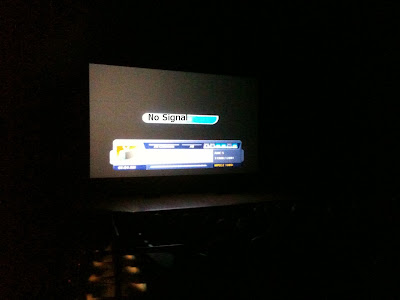
Once that is done, of course, the work is then subjected to production, budgets, singers and actors, dancers, chorus members, set designers, rehearsals, tryouts, rewrites, tantrums from every corner, a conductor and the weather during the performance, not to forget tailoring the length to fit the schedule of "when the last train leaves."
So when I say I dislike Howard Shore's opera The Fly, it is not with a flippant sense of "Next!" to push it aside. It might have been a thrilling work, but fell short on so many counts that I cannot believe someone didn't come up to him -- maybe the conductor Plácido Domingo? -- and say, "hey, Howard, this really sucks. Can't you put a little fire under it?" Thus, despite the beautiful sets and props, the best effort singing by a competent cast, and even the presence of bass-baritone Daniel Okulitch's vulnerable nudity on the stage, the work didn't hit the mark.
 Yet I keep returning to that long gestation period, where the composer must look at the libretto (David Henry Hwang's middling effort here) and write something that will catch the ear and engage the auditors. Time after time, the composer has opted not to do so, but to lay under the rather random vocal lines a blanket of semi tonal sounds that move up and down one note or two to keep it moving, never resolving, never starting, never ending, in a kind of perpetual limbo of vague sound. With a bland libretto, bland vocal line and barely perceptible accompaniment, we are about as far from "Di Quella Pira" as we can get (just kidding - I am sure there is much worse offered these days).
Yet I keep returning to that long gestation period, where the composer must look at the libretto (David Henry Hwang's middling effort here) and write something that will catch the ear and engage the auditors. Time after time, the composer has opted not to do so, but to lay under the rather random vocal lines a blanket of semi tonal sounds that move up and down one note or two to keep it moving, never resolving, never starting, never ending, in a kind of perpetual limbo of vague sound. With a bland libretto, bland vocal line and barely perceptible accompaniment, we are about as far from "Di Quella Pira" as we can get (just kidding - I am sure there is much worse offered these days). I would have thought that Halloween would have been a good time to revive the work--but I see no one has, after the Paris premiere and the Los Angeles production soon thereafter.
Since I havent' seen the score much less studied it, I can't say how much thematic unity there is in it. I can hear a punchy sequence in the brass that is repeated infrequently that I take is the 'fly' theme. There are at leasst two 'arias' or set pieces that are extended expressions of the characters' point of view (after which there is sustained applause); but neither of those identifiable cues are in any way moving, or used in a way that ties the experience together for the listener.
It is a tribute to the singers that they could remember those rambling, barely-logical vocal lines that seemed so random. Of course, had they made an error, no one would know - perhaps not even Mr. Shore.
See for yourself.
Truth to tell, the YouTube excerpt culls the very best seconds from the music. I wish it were all as exciting as that! The production looks terrific - something Wagner would have liked; and how it relates to the CD-version of the opera which obviously doesn't tie in the visual, is too much to speculate:

The production got it right, it seems. But to have the Lamberghini of opera companies' chorus intoning one note in octaves for pages on end, and to have the string section noodling over three notes for minutes and minutes on end is the sonic depiction of neurasthenia, and it's tantamount to running that sportscar at 15 miles an hour.
I suppose what made the recording worse was the radio interview that is interlarded with the performance (in fact, part of which takes up disc 2 of the set, which you may blamelessly discard or use as a coaster), delivered by two thoroughly uninformed and stultifyingly insipid people. Obviously having nothing to say but the two prepared sentences they have before them, they repeat the same sentences, the same questions, the same idiotic preambles over and over until one is ready to scream.
It's a great preparation for the opera itself. To the composer: "Mr Shore, you've said that you didn't use any music from the 1986 film in the opera. Did you?" Shore: "No, I didn't use any music from the film in the opera." "How would you compare the film music to the music in your opera?" Shore: "Well, I haven't really compared them." Oh, God. this goes on for half-hours at a time. I am surprised that the audience didn't thunderously leave the theater at intermission. Maybe they were expecting more naked people. what a surprise this bedroom scene must have been!

All in all, I admire the spunk of imaginative people to create something new. And indeed, I should not compare The Fly to Le Postillion de Longjumeau or Tosca. People's tastes and appetites change; I simply think Mr. Shore noodled a bit too much around his navel, and forgot the capacity of his audience to stick with the longueurs of his music.




